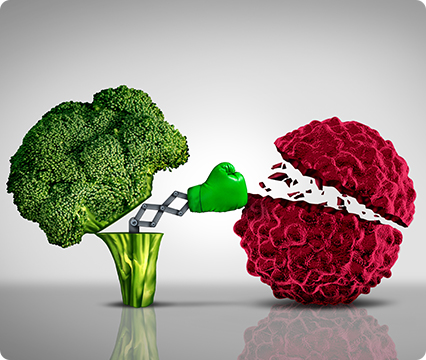Consumption of ultra-processed foods and cancer risk: results from NutriNet-Santé prospective cohort
This 2018 study determined the association between ultra-processed food consumption with risk of cancer using data from a population-based cohort study. The French NutriNet-Santé cohort, which recruited 104,980 adults aged at least 18 years ran for 8 years from 2009 to 2017. The participants’ 24-hour dietary records revealed their habitual intakes of 3300 different food items, which were then assessed on their level of processing. The consumption of ultra-processed foods was linked with higher overall cancer risk (increase of 12% for each 10% increment in proportion of ultra-processed food in diet). A similar relationship was found with breast cancer risk, where the probability of cancer rose by 11% as the proportion of ultra-processed foods in the diet increased by 10%. These results remained statistically significant even after numerous adjustments were made in the analysis model. In summary, this large prospective study has demonstrated that increasing the proportion of ultra-processed foods in the diet by 10% correlated with a marked increase (greater than 10%) in risks of overall and breast cancer. [NPID: cancer, inflammation, chemotherapy, France, breast cancer, processed food]
Year: 2018

 Navigation
Navigation






